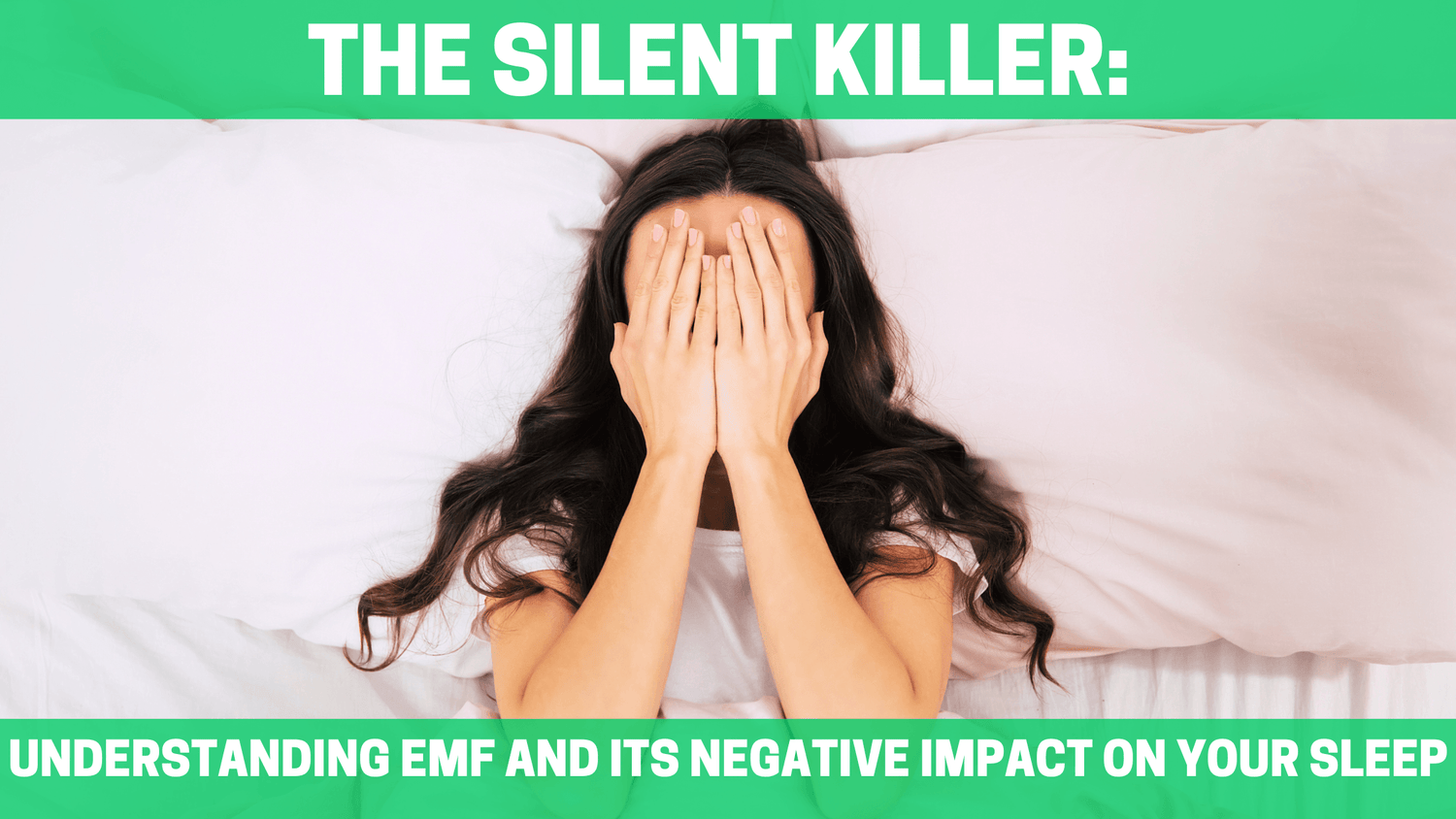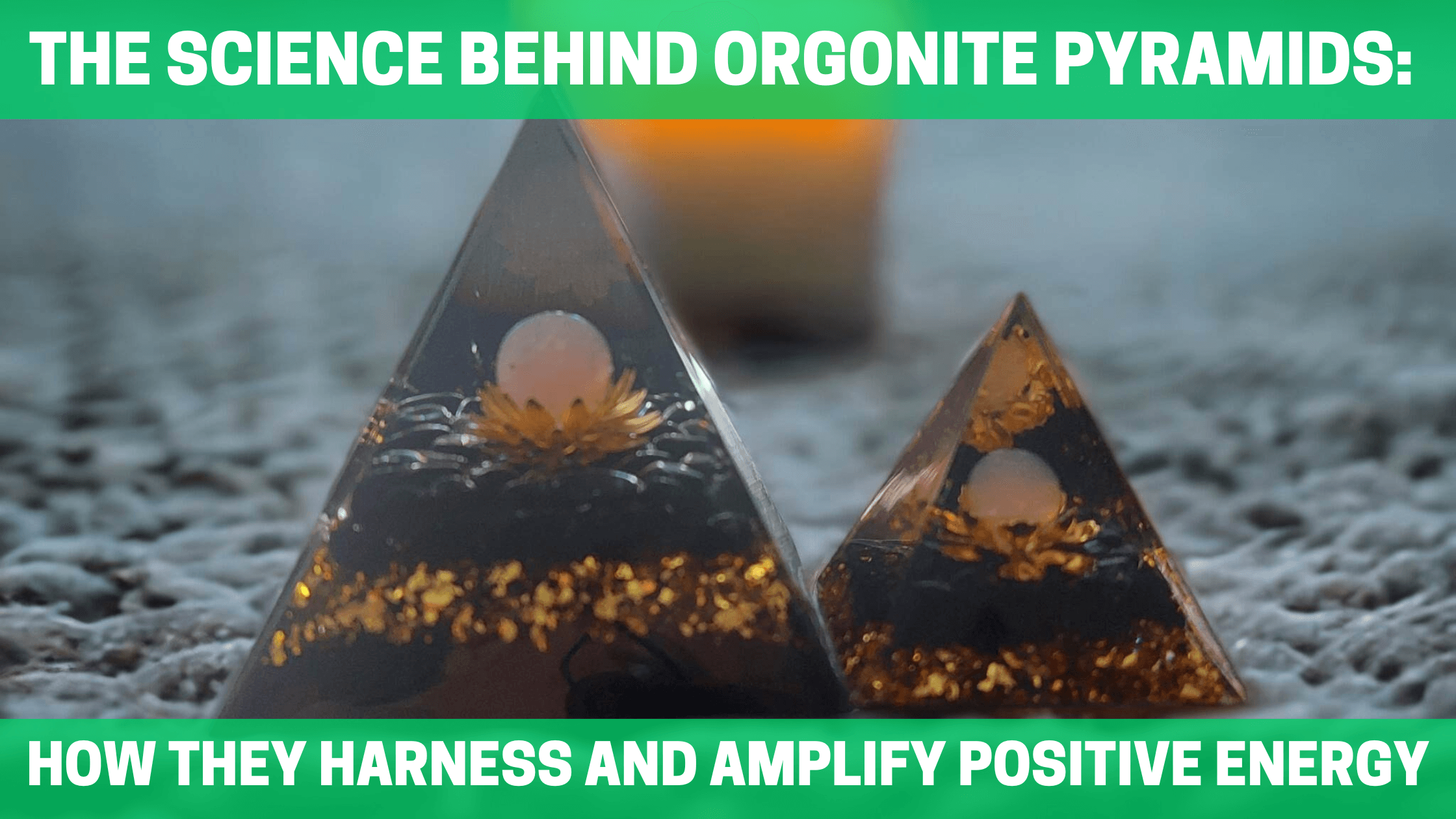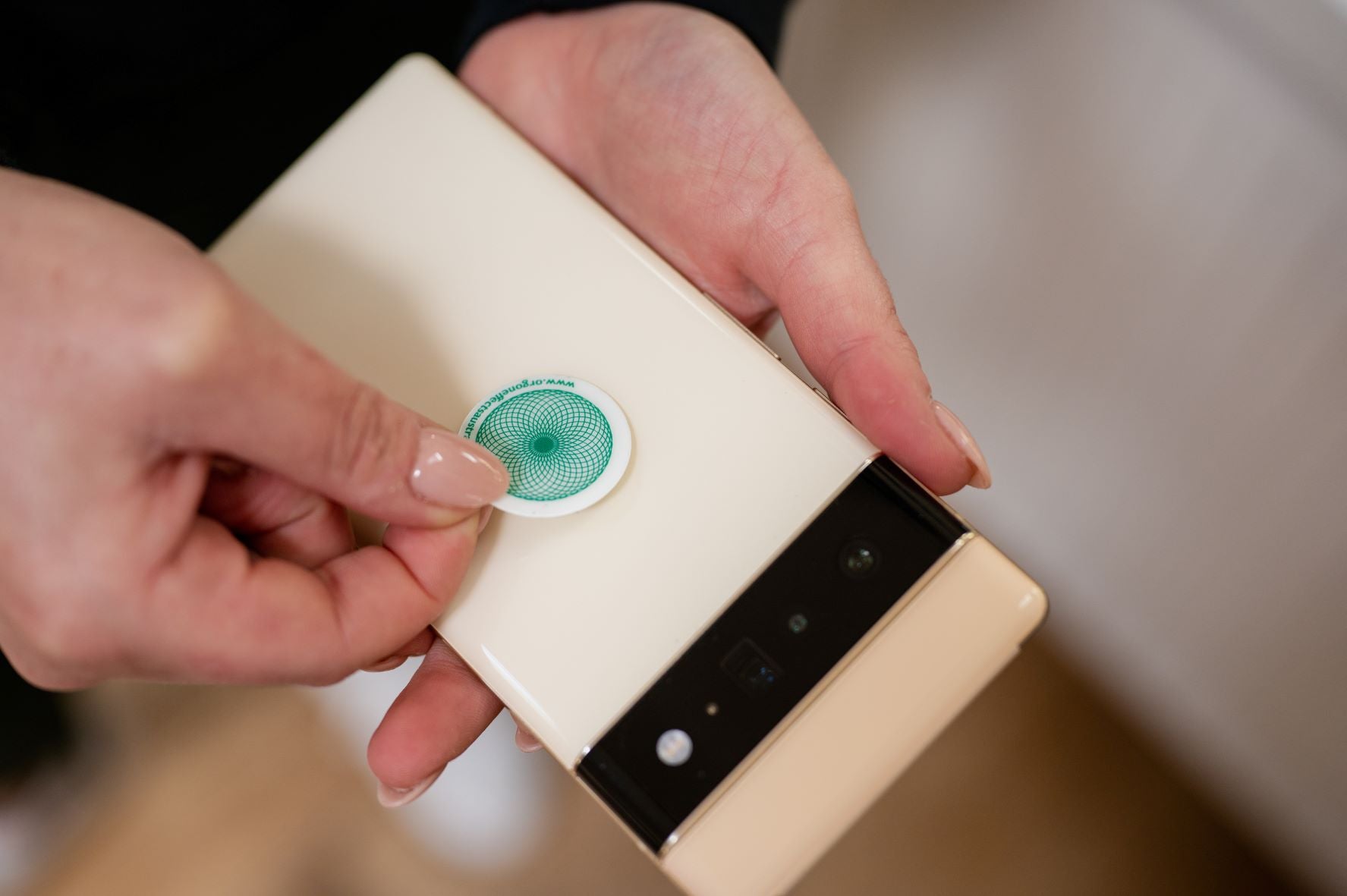In our modern world, we are constantly surrounded by technology and electronic devices. From our smartphones to our laptops and even our household appliances, we are constantly bombarded by electromagnetic fields or EMF.
While these fields may seem harmless, recent studies have shown that they can have a negative impact on our health, particularly on our sleep.
EMF exposure has been linked to a range of sleep disorders, including insomnia, sleep apnea, and even restless leg syndrome.
This is because EMF can disrupt the body's natural sleep cycle, making it more difficult to fall asleep and stay asleep.
In this article, we will explore the dangers of EMF exposure, how it affects your sleep, and most importantly, what you can do to reduce your exposure and get a good night's rest. So, if you're tired of tossing and turning all night, keep reading to learn more about the silent killer that is EMF.
What is EMF?
EMF stands for electromagnetic fields. These fields are created by the movement of electrically charged particles, such as electrons.
EMF is present wherever there is electricity, and it can be found in a wide range of electronic devices, including smartphones, laptops, televisions, and even your home's electrical wiring.
While EMF is a natural part of our environment, the level of exposure in our modern world is much higher than it was in the past. This is due to the proliferation of electronic devices and the increase in wireless technology.
EMF is categorized into two types: ionizing and non-ionizing. Ionizing EMF, such as X-rays and gamma rays, have enough energy to remove an electron from an atom, which can damage cells and DNA.
Non-ionizing EMF, such as the kind emitted by electronic devices, does not have enough energy to cause this type of damage.
However, studies have shown that long-term exposure to non-ionizing EMF can have negative health effects, particularly on sleep.
EMF works by sending out waves of energy that can penetrate the body. This energy can disrupt the body's natural electromagnetic field, which can interfere with the production of melatonin, a hormone that regulates sleep.
The Impact of EMF on Your Sleep
EMF exposure can have a significant impact on your sleep. Studies have shown that exposure to EMF can disrupt the body's natural sleep cycle, making it more difficult to fall asleep and stay asleep. This disruption can lead to a range of sleep disorders, including insomnia, sleep apnea, and restless leg syndrome.
One of the ways that EMF affects sleep is by interfering with the production of melatonin. Melatonin is a hormone that is produced by the pineal gland in the brain. It is responsible for regulating the body's sleep-wake cycle.
When the body is exposed to light, particularly blue light, the production of melatonin is suppressed. This is why it is recommended to avoid electronic devices before bedtime.
However, EMF can also interfere with the production of melatonin, even when there is no light present.
This can disrupt the body's natural sleep cycle, making it more difficult to fall asleep and stay asleep.
EMF exposure can also lead to an increase in cortisol, a hormone that is associated with stress. When cortisol levels are high, it can be difficult to fall asleep and stay asleep. This can lead to insomnia and other sleep disorders.
Additionally, EMF exposure can cause headaches, fatigue, and other symptoms that can make it difficult to get a good night's rest.
EMF Sources in Your Bedroom
Your bedroom should be a sanctuary where you can relax and get a good night's rest. However, there are a number of EMF sources that can interfere with your sleep.
Here are some common sources of EMF in your bedroom:
Electronic devices: This includes smartphones, tablets, laptops, and televisions. Even when these devices are turned off, they can emit EMF. It is recommended to keep these devices out of the bedroom or at least away from the bed.
Electrical wiring: The electrical wiring in your walls can also emit EMF. This is especially true if you have wiring that runs close to your bed.
Wi-Fi routers: Wi-Fi routers emit EMF, and if you have one in your bedroom, it can interfere with your sleep. It is recommended to turn off the Wi-Fi at night or move the router to another room.
Electric blankets: Electric blankets emit EMF, and if you use one, it can interfere with your sleep. It is recommended to avoid using electric blankets or at least turn them off before going to bed.
How to Reduce EMF Exposure in Your Bedroom
Reducing your exposure to EMF in your bedroom can help you get a better night's rest. Here are some tips for reducing your exposure:
Keep electronic devices out of the bedroom: This includes smartphones, tablets, laptops, and televisions. If you need to use these devices before bed, try to keep them at least six feet away from your bed.
Unplug electrical devices: Unplug electrical devices that are not in use, especially those that are close to your bed.
Use a wired connection: If possible, use a wired connection instead of Wi-Fi. This will reduce your exposure to Wi-Fi radiation.
Move the Wi-Fi router: If you must use Wi-Fi, move the router to another room, or at least away from your bed.
Use low-EMF lighting: Use low-EMF lighting in your bedroom, such as incandescent bulbs. Avoid using LED lights, which can emit blue light that can interfere with melatonin production.
Use Shungite in your bedroom: Shungite is a natural way to absorb EMF in your bedroom. Studies have shown shungite’s ability to reduce EMF as well as many other benefits for your health.
Use Orgone Energy products in your bedroom: At Orgone Energy there is a wide variety of EMF-protection products including whole-home protection as well as products made specifically for the bedroom, such as our Bamboo Orgone Blanket.
Tips for Better Sleep in an EMF-Filled World
Reducing your exposure to EMF is important, but it is not the only factor that can affect your sleep. Here are some additional tips for getting a good night's rest in an EMF-filled world:
Avoid caffeine: Caffeine can interfere with your sleep, especially if you consume it late in the day. Try to avoid caffeine after noon.
Stick to a sleep schedule: Go to bed and wake up at the same time every day, even on weekends.
Exercise regularly: Regular exercise can help improve the quality of your sleep.
Practice relaxation techniques: Meditation, deep breathing, and other relaxation techniques can help reduce stress and improve sleep.
Create a sleep-friendly environment: Make sure your bedroom is dark, quiet, and cool.
EMF and Children's Sleep
Children are more vulnerable to the effects of EMF than adults. This is because their bodies are still developing, and their skulls are thinner, which makes it easier for EMF to penetrate the brain. Additionally, children tend to spend more time using electronic devices than adults.
Studies have shown that exposure to EMF can have a negative impact on children's sleep. This can lead to a range of problems, including difficulty concentrating, mood swings, and behavioral issues. It is important to limit children's exposure to electronic devices, especially before bedtime.
EMF and Sleep Disorders
EMF exposure has been linked to a range of sleep disorders, including insomnia, sleep apnea, and restless leg syndrome. Insomnia is the most common sleep disorder, and it affects millions of people worldwide. It is characterized by difficulty falling asleep or staying asleep.
Sleep apnea is a disorder in which a person's breathing is interrupted during sleep. Restless leg syndrome is a disorder in which a person feels an irresistible urge to move their legs, especially at night.
While EMF exposure is not the only cause of these sleep disorders, it can contribute to their development. It is important to reduce your exposure to EMF in order to improve the quality of your sleep.
EMF and Overall Health
In addition to its impact on sleep, EMF exposure has been linked to a range of health problems, including cancer, heart disease, and infertility. While the evidence is not conclusive, it is clear that reducing your exposure to EMF can have a positive impact on your overall health.
The Future of EMF and Sleep
As technology continues to advance, it is likely that our exposure to EMF will increase. However, there are steps that we can take to reduce our exposure and protect our sleep. This includes using wired connections instead of Wi-Fi, keeping electronic devices out of the bedroom, and using low-EMF lighting.
It is also important for researchers to continue studying the effects of EMF on sleep and overall health. This will help us better understand the risks associated with EMF exposure and develop strategies for reducing our exposure.
Conclusion
EMF exposure is a silent killer that can have a negative impact on our sleep and overall health. While it is impossible to completely eliminate our exposure to EMF, there are steps that we can take to reduce it. By keeping electronic devices out of the bedroom, using low-EMF lighting, and practicing good sleep hygiene, we can improve the quality of our sleep and protect our health.





